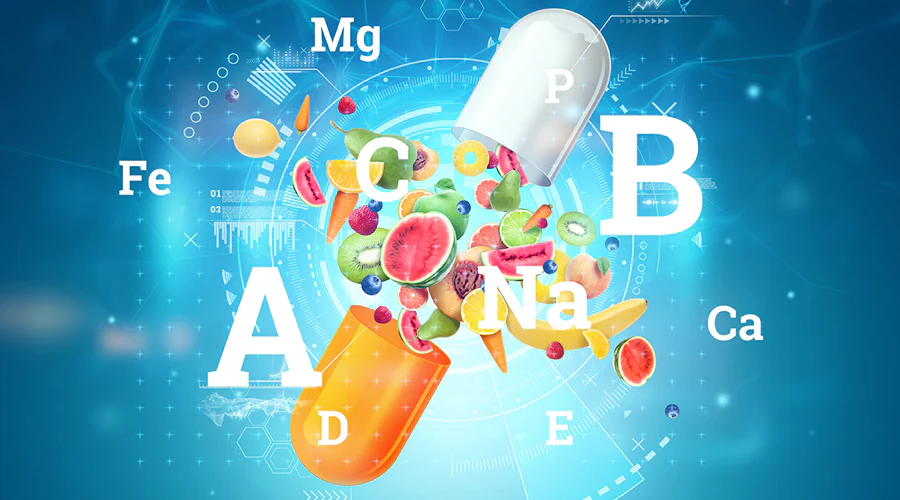Introduction: Embracing the Change
Perimenopause, the transition period leading up to menopause, can be both an exciting and challenging time. It typically starts in your 40s, although some women experience it earlier, lasting several years. During this phase, the body undergoes hormonal changes that may trigger a variety of physical and emotional symptoms, such as hot flashes, mood swings, and sleep disturbances.
So, how to prepare for menopause, and what steps can you take to ease this transition naturally? Preparing for menopause before it happens, both physically and mentally, will not only reduce the intensity of symptoms but also help you feel more in control as you navigate these changes. The key is understanding the changes your body is going through and taking proactive steps to prepare for menopause naturally.
In this article, we will explore practical and natural ways to prepare for perimenopause, including lifestyle changes, essential vitamins, exercise, and mental health tips. Let’s dive in.
Understand Perimenopause: The First Step to Preparation
Before learning how to prepare for menopause, it’s crucial to first understand what perimenopause is and how it affects your body. Perimenopause begins when your ovaries start producing less estrogen, usually in your mid-to-late 40s, although it can start earlier. During this phase, your menstrual cycle may become irregular, and you might experience changes in mood, energy levels, and sleep patterns.
The key to preparing for menopause naturally is to recognize the symptoms early. These can include:
- Irregular periods
- Hot flashes and night sweats
- Mood swings or irritability
- Vaginal dryness
- Changes in sleep patterns
Being aware of these symptoms allows you to take early action in addressing them, minimizing discomfort, and preparing for menopause naturally, well before it officially begins.
Lifestyle Changes for a Smooth Transition
How to prepare for menopause naturally is all about making smart, holistic lifestyle adjustments that support your body and mind through the hormonal changes of perimenopause. By prioritizing your overall health, you can alleviate many of the common symptoms.
Ease your transition naturally with Menocil®. Order today!
Exercise: A Vital Element in Managing Symptoms
One of the best ways to prepare for menopause naturally is through regular physical activity. Exercise is crucial for maintaining a healthy weight, reducing stress, boosting your mood, and improving sleep—issues that are often exacerbated during perimenopause.
Cardiovascular exercises like walking, swimming, or cycling improve heart health and circulation, reducing the risk of heart disease, which increases after menopause. Strength training exercises are also important, as they help build muscle mass and maintain bone density. As estrogen levels decline during perimenopause, bone density decreases, putting you at greater risk for osteoporosis. Strength training helps combat this.
Yoga and Pilates can also be incredibly beneficial. These practices not only improve flexibility but also help reduce stress and manage anxiety, a common emotional symptom of perimenopause.
Diet: Fuel Your Body with Nutrients
When it comes to how to prepare for menopause naturally, a nutrient-rich diet is essential. The foods you eat play a vital role in maintaining hormonal balance, supporting bone health, and reducing inflammation.
- Calcium and Vitamin D: These nutrients are critical for bone health, especially during perimenopause. As estrogen levels decrease, the risk of osteoporosis increases. Incorporate foods like leafy green vegetables, dairy products, tofu, and fortified cereals, as well as fatty fish like salmon, for vitamin D.
- Magnesium: Magnesium supports muscle function and helps combat insomnia. You can find magnesium in nuts, seeds, legumes, and leafy greens.
- Phytoestrogens: These plant compounds mimic estrogen in the body and can help balance hormone levels. Foods like soy, flaxseeds, and chickpeas are rich in phytoestrogens and may help alleviate hot flashes.
In addition to eating nutrient-rich foods, it’s also important to stay hydrated. Drink plenty of water throughout the day to avoid dehydration, which can make symptoms like fatigue and headaches worse.
Avoid Triggers: Limit Caffeine and Alcohol
Caffeine and alcohol can trigger or worsen perimenopausal symptoms, especially hot flashes and night sweats. Limiting these substances can help reduce symptoms and promote better sleep. If you’re used to drinking coffee or wine, try to reduce your intake or switch to alternatives like herbal tea or decaffeinated beverages. If night sweats are a concern, explore effective solutions in our guide on How to Reduce Menopausal Night Sweats.
Make perimenopause easier. Menocil® is here to help!
Vitamins and Supplements: Key Nutrients to Support Your Transition
 Vitamins to Prepare for Menopause
Vitamins to Prepare for MenopauseOne of the most effective ways to prepare for menopause is by ensuring your body receives the vitamins and minerals it needs to stay healthy during this transition.
Vitamin D and Calcium for Bone Health
As estrogen levels decline, women become more prone to bone thinning and fractures. This makes calcium and vitamin D supplementation particularly important. Vitamin D helps the body absorb calcium, which is essential for maintaining bone density. Aim for 1,000-1,200 mg of calcium per day and 600-800 IU of vitamin D, depending on your age.
Vitamin B6 for Mood Regulation
Mood swings and irritability are common during perimenopause, thanks to fluctuating hormone levels. Vitamin B6 can help manage these emotional symptoms by supporting serotonin production in the brain and improving mood stability. Foods like poultry, fish, potatoes, and non-citrus fruits are good sources of vitamin B6.
Magnesium for Sleep and Stress Relief
Magnesium plays a vital role in relaxation and sleep quality. It also helps combat stress and anxiety, which tend to increase during perimenopause. Foods like almonds, spinach, and avocado are rich in magnesium, or you can consider magnesium supplements if necessary.
Managing Mental Health During Perimenopause
 Mental Health During Perimenopause
Mental Health During PerimenopauseWhile preparing for menopause physically is important, mental health is equally crucial. The hormonal shifts during perimenopause can lead to anxiety, depression, and mood swings, which can be challenging.
Mindfulness and Stress Management
One of the most effective ways to prepare for menopause naturally is by adopting stress-relief techniques like mindfulness, deep breathing, and meditation. These practices can reduce the mental and emotional toll that perimenopause can take on your well-being.
Taking time each day to practice deep breathing or meditate for just 10-15 minutes can help clear your mind, lower your stress levels, and improve your mood. Regular mindfulness practices can reduce the intensity of emotional symptoms and help you stay grounded.
Support Systems and Therapy
Having a support network is vital during perimenopause. Talking to friends, family, or even a therapist can provide emotional relief and help you process the changes you’re experiencing. Group therapy or online support communities can be especially helpful, as they connect you with others who are going through similar experiences.
Balance hormones and feel your best. Order Menocil®!
Medical Support: When to Seek Professional Help
While natural remedies can be highly effective in managing perimenopausal symptoms, there may be times when professional medical advice is necessary. A healthcare provider can help you manage severe symptoms and recommend appropriate treatments.
Hormone Replacement Therapy (HRT)
If symptoms like hot flashes, night sweats, or vaginal dryness become unmanageable, hormone replacement therapy (HRT) might be an option. HRT can help replace the estrogen your body is no longer producing, providing relief from common symptoms. However, it’s essential to consult with a healthcare provider to discuss the risks and benefits of HRT.
Non-Hormonal Medications
For women who are not candidates for HRT, other medications, such as antidepressants or anti-seizure drugs, may be prescribed to help with mood swings or hot flashes. Your doctor will work with you to find the best treatment plan based on your individual symptoms.
FAQs
What is the best age to start preparing for perimenopause?
It’s best to start preparing for perimenopause in your late 30s to early 40s, as this is when hormonal changes typically begin. Early preparation can help manage symptoms and reduce their impact on your health.
Can I prepare for menopause naturally?
Yes, you can prepare for menopause naturally by focusing on a healthy lifestyle, including a balanced diet, regular exercise, stress management, and essential vitamins like calcium, magnesium, and vitamin D.
What vitamins should I take to prepare for menopause?
Vitamins like calcium, vitamin D, magnesium, and vitamin B6 are key for supporting bone health, reducing mood swings, and improving sleep during perimenopause. Consult with a healthcare provider to ensure proper dosages.
How can I manage hot flashes during perimenopause?
To manage hot flashes, try lifestyle changes like staying hydrated, dressing in layers, and avoiding triggers like caffeine and alcohol. Regular exercise and stress-reduction techniques like yoga or mindfulness can also help.
Is hormone replacement therapy (HRT) necessary for managing perimenopause?
HRT is not necessary for everyone, but it can be an option for women experiencing severe symptoms like hot flashes or night sweats. It’s important to consult with a healthcare provider to evaluate the risks and benefits for your specific situation.
How long does perimenopause last?
Perimenopause can last anywhere from 4 to 10 years. The duration varies for each woman, depending on factors like genetics, lifestyle, and overall health. Symptoms tend to subside once menopause is complete, which is typically around age 50.
Conclusion: Empower Yourself for a Smooth Transition
Preparing for perimenopause is about taking control of your health and embracing this natural phase of life with confidence. By making lifestyle adjustments, incorporating essential vitamins, and prioritizing your mental well-being, you can navigate this transition with greater ease and comfort.
Remember, preparing for menopause before it happens is the key to managing symptoms naturally and feeling empowered throughout this change. With the right knowledge and proactive steps, you can experience a smooth transition and thrive through perimenopause, menopause, and beyond.



